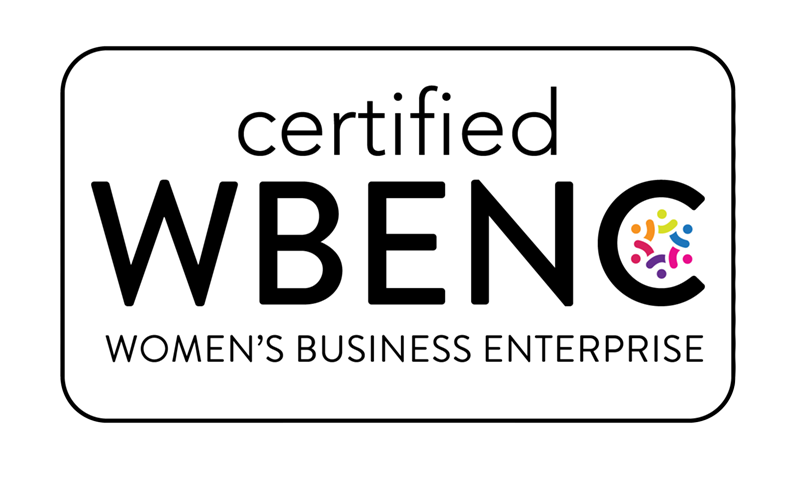Managing Trade Disputes: How to Handle Customs Audits and Penalties-Part 26
Audio Conversation:
Full Blog Article:
For small and midsize businesses venturing into international trade, customs audits and penalties can be daunting. The complexity of trade regulations, coupled with the risk of non-compliance, means that even unintentional mistakes can lead to costly fines, shipment delays, and reputational damage. But don’t worry—by understanding how to handle customs audits and trade disputes effectively, your business can navigate these challenges and maintain compliance.
In this article, we’ll break down the essentials of customs audits, common reasons for penalties, and best practices for resolving disputes with U.S. Customs and Border Protection (CBP). We’ll also discuss how a U.S. customs broker can support your business in ensuring smooth trade operations.
Understanding Customs Audits: Why They Happen
A customs audit is an official review conducted by CBP to verify the accuracy of a company’s trade transactions. The goal is to ensure that businesses are complying with U.S. import and export laws, paying the correct duties and tariffs, and following proper documentation procedures.
There are several types of customs audits, including:
1.
Focused Assessments (FAs) – A comprehensive review of a company’s import practices, usually triggered by inconsistencies in reporting or red flags in compliance history.
2.
Quick Response Audits (QRAs) – A more targeted audit focusing on specific areas, such as country of origin marking, classification of goods, or valuation.
3.
Compliance Measurement Exams – Randomly selected audits that assess general compliance trends across industries.
Many audits stem from previous errors, whistleblower reports, or inconsistencies in trade data flagged by CBP’s automated systems.
Common Reasons for Customs Penalties
Even well-intentioned businesses can face penalties if they are unaware of the rules. Some of the most frequent violations that result in penalties include:
1.
Misclassification of Goods
- As discussed in Article 3 on "Harmonized System (HS) Codes", incorrect classification can lead to underpayment or overpayment of duties, triggering audits and penalties.
2.
Incorrect Valuation of Imports
- Understating or overestimating the declared value of goods can lead to fines and shipment holds. Article 15 on "Valuation Methods" explores this in detail.
3.
Country of Origin Marking Violations
- Failure to comply with country of origin marking laws, as covered in Article 9 "Country of Origin Marking: Why Is It Important to Label Products Correctly", can result in shipment seizures.
4.
Violations of Free Trade Agreements
- If businesses improperly claim tariff exemptions under trade agreements like USMCA, they may face retroactive duties and penalties.
5.
Failure to Screen for Denied Parties
- Exporting to restricted entities listed on the Denied Parties List can lead to significant fines and even criminal charges, as highlighted in Article 6, "Denied Parties Lists: Why Should You Check These Lists Before Doing Business with Foreign Entities".
6.
Lack of Proper Documentation
- Missing or inaccurate export documentation, as highlighted in Article 5, "Export Documentation: What Paperwork is Required for Shipping Goods Abroad", can cause customs holds and penalties.
How to Handle a Customs Audit or Dispute
Facing a customs audit can be stressful, but taking the right steps can help resolve the situation smoothly.
Step 1:
Respond Promptly and Cooperate
- If CBP initiates an audit, respond immediately. Delays or non-cooperation can escalate the issue.
- Assign a compliance officer or engage a customs broker to handle the communication.
Step 2: Gather and Review Your Documentation
- CBP will request records such as invoices, packing lists, bills of lading, and past filings.
- Review these documents for errors before submitting them. If discrepancies exist, prepare an explanation.
Step 3: Conduct an Internal Audit
- If you suspect compliance issues, perform an internal review to identify and correct errors before CBP imposes penalties.
- Our upcoming article on Post-Entry Audits explores how businesses can proactively identify compliance risks.
Step 4: Consider Filing a Prior Disclosure
- If errors are found, CBP allows businesses to file a Prior Disclosure, which can reduce penalties if submitted before an audit begins.
Step 5:
Negotiate and Appeal, if Necessary
- If penalties are imposed, you have the right to challenge CBP’s findings through an appeal or petition.
- A trade compliance expert or customs attorney can assist in negotiating lower penalties.
Preventing Future Trade Disputes
The best way to handle a customs dispute is to prevent it from happening in the first place. Here are a few proactive steps to minimize your risk:
1.
Strengthen Trade Compliance Programs
- Develop standard operating procedures (SOPs) for import/export compliance.
- Train staff regularly on trade laws and internal policies.
2. Use Trade Compliance Software
- Automating compliance with Trade Compliance Software, covered in Article 10 "How Can Technology Simplify Compliance Processes", can help track transactions and flag inconsistencies before an audit happens.
3. Conduct Regular Internal Audits
- Regular internal compliance reviews help catch potential violations before they become a problem.
- Engage external compliance consultants or customs brokers for an unbiased assessment.
4.
Work with a Licensed Customs Broker
- A licensed customs broker can help ensure proper documentation, accurate classification, and compliance with CBP regulations—reducing the risk of penalties.
How a U.S. Customs Broker Can Support Your Business
Navigating customs audits and disputes can be overwhelming, but a licensed customs broker can be an invaluable partner. Here’s how they help:
- Ensure Proper Classification and Valuation – Brokers have expertise in tariff codes and valuation rules to prevent costly errors.
- Manage Documentation and Filings – They ensure your import and export documents are accurate and complete.
- Assist in Audit Responses and Appeals – Brokers can help businesses respond to audits and negotiate with CBP to reduce penalties.
- Implement Compliance Programs – They provide ongoing guidance to minimize future trade risks.
If you want to avoid compliance headaches and focus on growing your business, partnering with a customs broker is a smart investment.
Summary:
Key Takeaways
1.
Understand Customs Audits:
Audits can be random or triggered by errors, and they require full cooperation and documentation.
2.
Common Reasons for Penalties: Issues like incorrect classification, valuation mistakes, and missing documents can lead to fines.
3.
How to Handle a Dispute:
Respond promptly, review documentation, consider filing a prior disclosure, and appeal if necessary.
4.
Prevent Future Issues: Strengthen compliance programs, use trade software, conduct internal audits, and work with a licensed customs broker.
Frequently Asked Questions (FAQs)
Q1: What should I do if I receive a customs audit notice?
A1: First, don’t panic. Respond to CBP promptly and gather all requested documents. Consider consulting a customs broker or trade compliance expert to ensure an accurate response.
Q2: How can I prevent customs penalties in the future?
A2: Maintain accurate records, classify products correctly, use compliance software, and conduct regular internal audits. A licensed customs broker can also help ensure ongoing compliance.
Q3: Can I challenge customs penalties if I believe they are unfair?
A3: Yes, businesses can appeal CBP’s decisions through an administrative petition or request a binding ruling for clarification on trade regulations.
Next Up:
Automating Trade Compliance
Handling customs audits and disputes manually can be time-consuming and risky. But what if artificial intelligence and data analytics could streamline compliance and flag potential risks before they happen?
Stay tuned for our next article: “Automating Trade Compliance: Leveraging AI and Data Analytics for Accuracy” to discover how technology can revolutionize your trade compliance processes.
References
- U.S. Customs and Border Protection (CBP): Link
- Electronic Code of Federal Regulations (eCFR): Link
- U.S. International Trade Administration (ITA): Link
If you're curious to see how we can help, please visit our website
http://magneticprecision.com/
For inquiries and questions, contact us at
inquiries@magneticprecision.com.
Stay tuned for more insights as we continue our journey to mastering global trade compliance!


